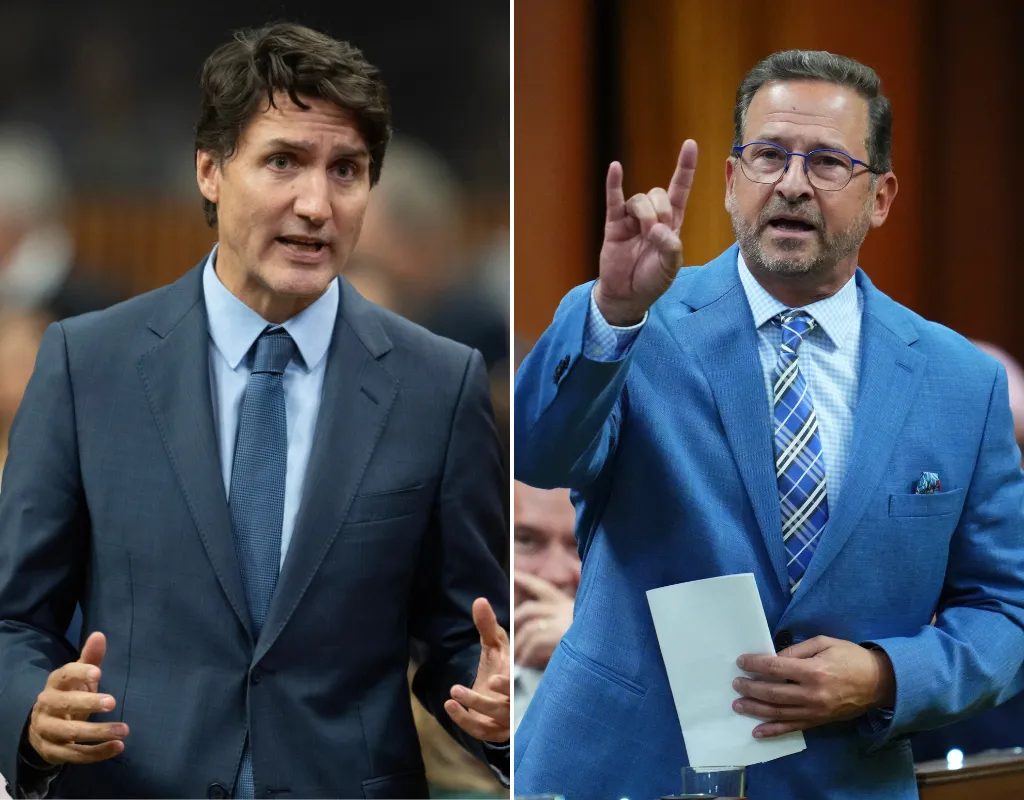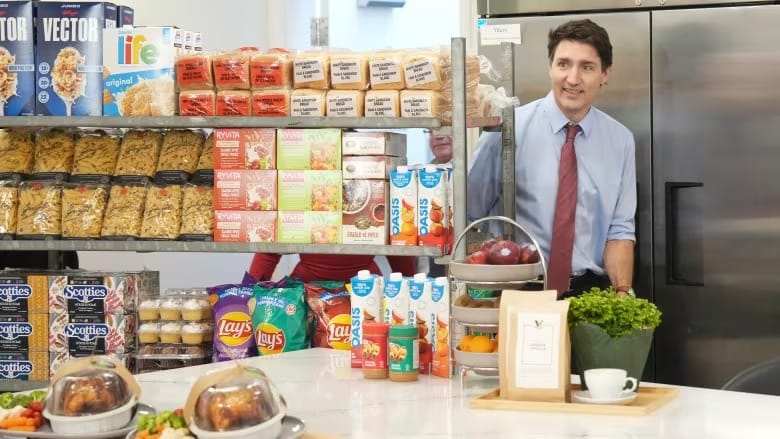Liberal political strategy at odds with Bloc demands for old age security bill
The government has just weeks to decide if it will meet the $16-billion demand from the Bloc Québécois to stave off an election for a few more months, but the stipulation may be at odds with the political and fiscal plans of the Liberals.

The government has only a few weeks to decide whether to meet the Bloc Québécois' demand for $16 billion in funding to avoid triggering an early election. This request could clash with both the political and fiscal goals of the Liberal Party.
Over the past year, the Liberals have carefully shaped their political messaging around addressing the frustrations of millennials and Gen-Z Canadians, who feel their efforts aren't yielding the same rewards as those of previous generations. Prime Minister Justin Trudeau has been promoting policies aimed at ensuring "fairness for every generation."
However, the Bloc Québécois has set a deadline of October 29 for the Liberals to approve spending for a private member’s bill that would increase old age security for seniors under 75. If the government doesn't back the bill by then, Bloc Leader Yves-François Blanchet has said he will explore options with other parties to bring down the minority government before the new year.
“I don’t see the political benefit for the Trudeau Liberals in spending more on seniors,” commented Andrew Perez, a Liberal strategist with Perez Strategies. Perez added that seniors are the only demographic where the Liberals remain competitive, while younger voters—who were key to Trudeau’s success in 2015—appear to have shifted toward supporting Conservative Leader Pierre Poilievre.
“Liberals traditionally lead among younger generations, so it’s surprising and concerning for the party to see these numbers,” Perez noted.
Tyler Meredith, a former economic adviser to Trudeau and several finance ministers, pointed out that no party is likely to oppose more funding for seniors in the House of Commons. However, he highlighted concerns about the cost and implementation of such a policy.
The Liberal government had already increased old age security payments for people over 75 in 2022, with the aim of helping the most vulnerable seniors. The parliamentary budget officer estimates that extending those benefits to seniors under 75 would cost an additional $16 billion over five years—a hefty sum that would further increase the deficit.
For the Liberals, finding room for this extra $16 billion, while also addressing housing and other key issues ahead of the next election, will be challenging. Meredith questioned whether this is the best use of resources, stating, “I’m not sure it’s necessarily intergenerationally unfair, but I’m not convinced it’s the most effective allocation of funds.”
Finance Minister Chrystia Freeland had previously introduced new fiscal rules to curb spending and deficits, aiming to prevent federal expenditure from interfering with the Bank of Canada’s efforts to manage inflation. Last week, Freeland commented, “When it comes to further support for seniors, we are having constructive discussions about potential economic measures with both the Bloc and the NDP.”
The federal government’s spending on seniors' benefits has already surged, with nearly $70 billion allocated to old age security, the guaranteed income supplement, and spousal allowances in 2022. The Bloc argues that limiting the old age security increase to those over 75 is discriminatory.
However, Stephen Gordon, an economics professor at Laval University, disagreed, noting that older seniors are often in greater need. “People over 75 are less likely to work to boost their income and more likely to have used up their savings,” Gordon said, adding that seniors generally have lower poverty rates than other age groups.
Gordon emphasized that other pressing issues, such as housing, education, and healthcare, should take precedence over increased payments to seniors. "This is very low on the list of priorities, especially given the federal government's increasingly precarious financial situation," he said.
Statistics Canada reports that the poverty rate for seniors aged 65 and older was six percent in 2022, compared to the national poverty rate of 9.9 percent.
The Liberals face a tight timeline to decide their course of action. Beyond the Bloc’s October deadline, the government is also preparing a fall economic statement outlining its spending plans and economic forecasts. Additionally, the House of Commons is expected to vote on several confidence motions that could potentially bring down the government in the coming weeks.





